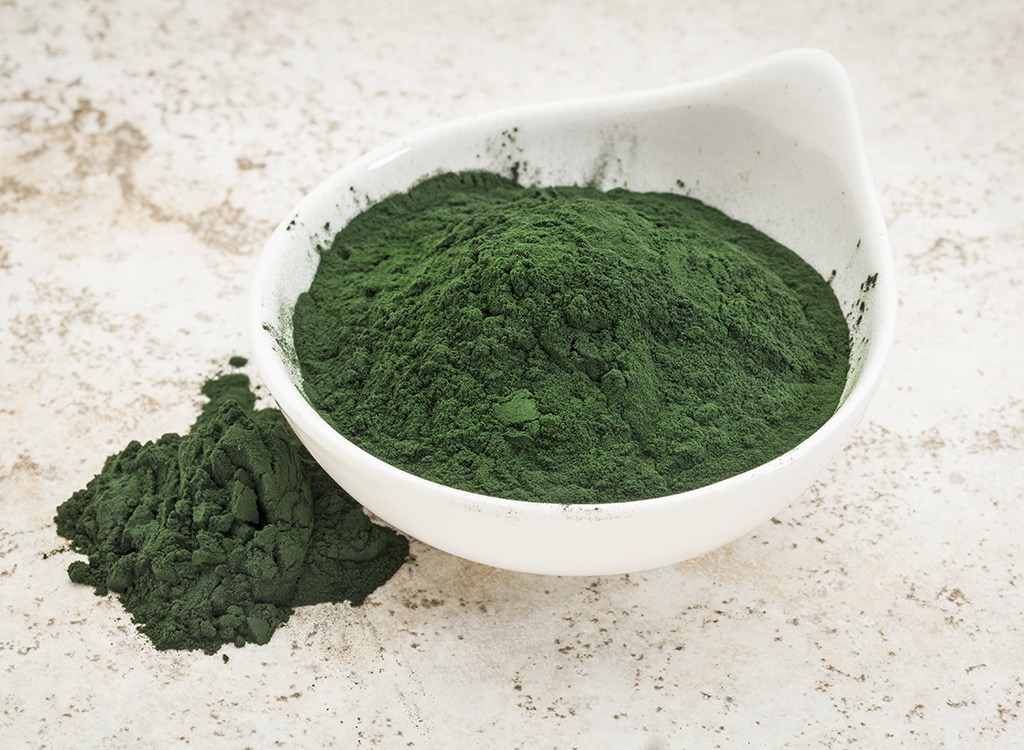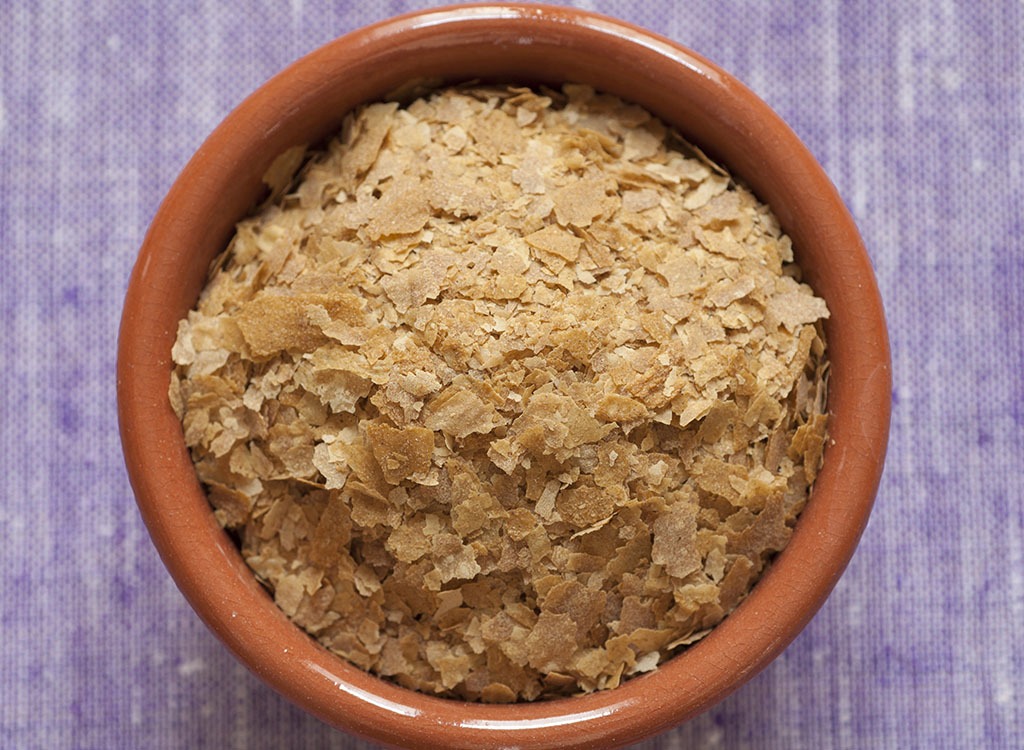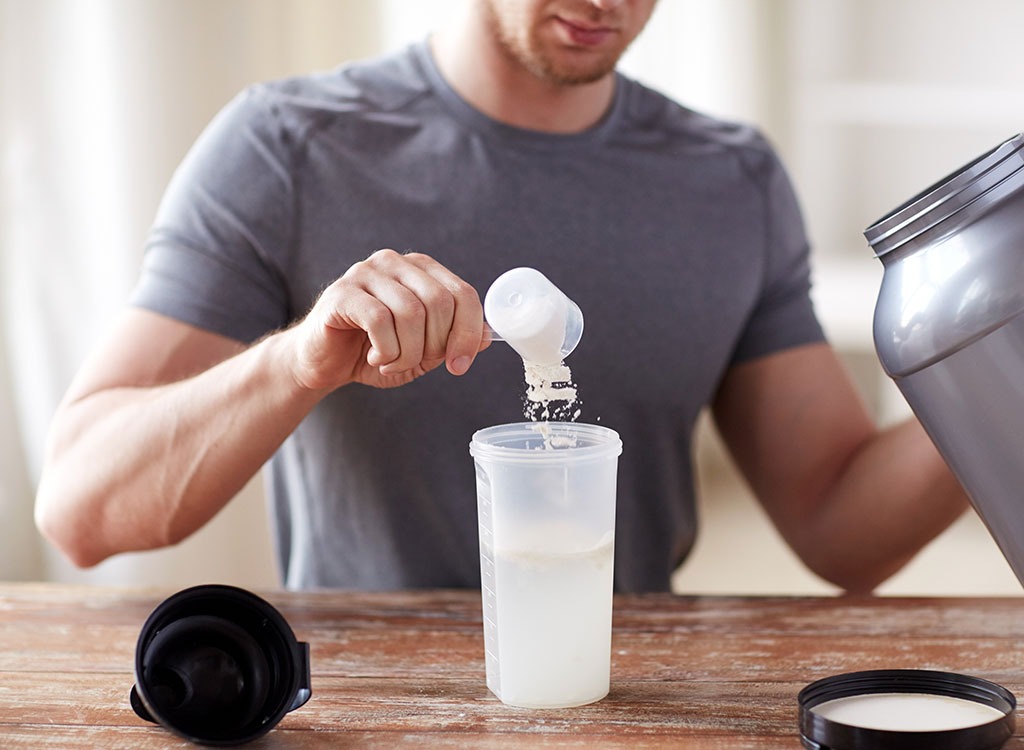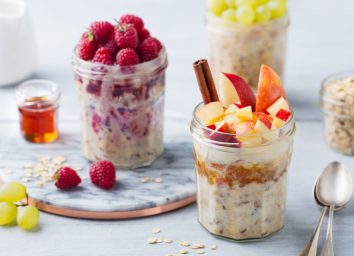8 Supplements Diet Experts Swear By for Total Health

It’s time you know the truth: The pills you pop to improve your total health aren’t always worth the cost.
In fact, some synthetic vitamins are downright dangerous; they’re hyper-dosed and full of creepy additives. And unlike prescription drugs, supplements aren’t subject to regular testing or approval by the Food and Drug Administration.
In a perfect world, we’d all have pristine diets and could avoid dietary supplements altogether. But the fact is, we don’t. For optimal health, our bodies demand a wide range of vitamins and minerals—many of which we don’t get in sufficient amounts from our largely imperfect diets. Fortunately, there are a few high-quality vitamins, minerals (and even pantry items) that are worth taking. We reached out to some of the country’s top registered dietitians for the supplements they swear by, and the tried-and-true brands they recommend. Check ’em out below and then also discover the 21 Things You Don’t Know About Vitamins!
Probiotics

“Supplementing daily with a high-quality probiotic can help strengthen your immune system, ease digestive issues, decrease overall inflammation and help with regularity. A form of ‘good’ bacteria, probiotics work to restore a healthy balance of microflora in the body by decreasing the ‘bad’ inflammatory bacteria in our guts, and replacing the ‘friendly’ bacteria that are often destroyed, like when we take antibiotics. I recommend shopping for a multi-strain variety that mimics the huge array of strains and species found naturally in the gut. Although you can also get probiotics from consuming fermented foods like kimchi, kefir, kombucha, sauerkraut and cultured vegetables, many people struggle with taking in these foods consistently.” — Danielle Omar, MS, RD, Integrative Dietitian
Nutritional Yeast

“I am a big proponent of ‘food first, then supplements.’ With that in mind, I like to think of nutritional yeast—an inactive form of yeast grown on sugarcane and molasses that is sold as a food product—as a supplement. You’ll find nutritional yeast at health food stores (either in the baking, condiment, or supplement aisles). It comes in flaked or powdered form and has a unique ‘umami’ flavor that can best be compared to a nutty Parmesan cheese. It goes great with pasta, salads, stir-fries, soups, stews, dressings and dips. A 3-tablespoon serving provides well over a day’s worth of B vitamins, as well as 5 grams of fiber, 9 grams of protein and as much potassium as a small banana. It’s also an excellent source of zinc and selenium. I recommend that vegans specifically look for a brand that is fortified with vitamin B12—a nutrient found primarily in animal products that is essential for proper functioning of the central nervous system and a fast metabolism.” — Andy Bellatti, MS, RD
Vitamin D

“While I recommend people count on foods, not supplements, for vitamins and minerals, vitamin D is another story. Even though it’s called the ‘sunshine vitamin,’ most people can’t count on the sun for enough, and it can be tough to get all you need from diet alone. In fact, vitamin D deficiency occurs in about 40% of the population worldwide. Low levels not only negatively affect bone health and the immune system but may also increase risk of inflammation, heart disease, cancer, diabetes, autoimmune diseases, fatigue, dementia and mood disorders. The Vitamin D Council recommends 5,000 IUs of vitamin D3 per day for adults (and no more than 10,000 IUs/day), but you should work with your doctor to test your vitamin D levels before beginning supplementation to correct a deficiency, then follow up every 3 months to ensure you’re at an optimal range. Remember, this a fat-soluble vitamin, so you’ll want to take your D with a snack or meal that contains a few grams of fat.” — Claudia Zapata, MS, RD
Apple Cider Vinegar

“I love raw apple cider vinegar and recommend it to our Foodtrainers’ clients for improved weight loss results. ACV is rich in a compound called acetic acid that has proven to speed up fat burning by interfering with the body’s ability to digest starch. It also helps regulate the appetite by keeping blood sugar nice and steady and warding off spikes associated with weight gain. I recommend starting every day with an ACV tonic: 1 tablespoon diluted in a glass of water; you can take it again before dinner if you’d like. Make sure to buy raw ACV, which should appear cloudy — a sign that the vinegar is mature and rich in good-for-you bacteria. We like Vermont Organic Farm’s apple cider vinegar from Dwight Miller & Son Orchards for its superior taste and quality, and use it exclusively in our offices.” — Lauren Slayton, MS, RD, Author of The Little Book of Thin
DON’T MISS: 30 Awesome Uses for Apple Cider Vinegar
Fish Oil

“Fish oil is one supplement I believe everyone would benefit from, and my whole family — including our 3- and 6-year-old girls — take it daily. Research supports the widespread benefits of high-quality fish oil that span basically every cell in your body, including your heart, brain and skin. Unfortunately, the best sources of omega-3—an essential fat that people need to get from their diets—aren’t common in a Western Diet. Research also suggests that even people who regularly eat natural sources, like fish, would benefit from higher doses. You want to aim for at least 1,000 mg of EPA and DHA combined (those are both types of omega-3 fats), and the key is using a brand that’s molecularly distilled (it will tell you this on the product itself), doesn’t smell or taste fishy (you’d find that out real quick) and has a reputation for being trustworthy. I use, like, trust, recommend and have partnered with Nordic Naturals; it’s what we use in our house and is the industry leader.” — Christopher R. Mohr, PhD, RD, co-owner Mohr Results
Multivitamins

“Nothing beats a healthy, well-balanced diet for good health. But if you don’t have a perfect diet (and let’s face it, how many of us do?), including a high-quality multivitamin as part of your daily routine is an easy way to fill the nutritional gaps necessary for your individual health needs. Don’t let the options overwhelm you. If you spend some time reading the labels, you can find a multivitamin perfectly tailored to your health challenges and goals. For example, if a client came to me with symptoms of chronic fatigue and tummy trouble, I would suggest New Chapter Perfect Calm Multivitamin — or another brand with a mix of nutrients proven to help regulate energy levels and digestion. I recommend whole food vitamins for their digestibility, over synthetic products that derive their ‘nutrition’ from chemicals. Some of my favorite, high-quality brands are Garden of Life, New Chapter and MegaFood.” — Nikki Ostrower, Integrative Nutritionist, NAO Nutrition
Protein Powder

“Nearly every morning I start my day with a protein powder that contains a probiotic, especially when I’m busy! Adding a scoop of high-quality protein to a smoothie, strained yogurt or bowl of oatmeal is an easy way to start the day with a powerful punch of satiating protein that—unlike a high-starch meal like a bagel—can help steady your blood sugar and keep your hands out of the snack drawer until lunch. When shopping for a protein powder, read the ingredients label for artificial flavorings, colors and sneaky added sugars under all of their possible names (not naturally occurring). Most importantly, look at the serving size (how many tablespoons or scoops) compared to the protein content. Don’t be wooed by the one that seems to have more protein but also requires more powder.” — Carlene Thomas, RDN, LD
Magnesium

“I take 250 mg of magnesium daily to prevent headaches, and it’s especially effective for people who suffer from more severe migraines. Often forgotten, magnesium is an essential mineral that every organ in our body needs — and most people are not meeting the recommended daily intake. Luckily, serious deficiencies are rare since the mineral can be found a variety of common healthy foods, like green leafy vegetables, unrefined grains, meat and nuts. Since research suggests that magnesium benefits may also decrease inflammation and help regulate blood sugar levels, it’s worth talking with your doctor about a supplement that will help you meet the recommended amount.” — Lori Zanini, RD, CDE, Spokesperson for the Academy of Nutrition and Dietetics








